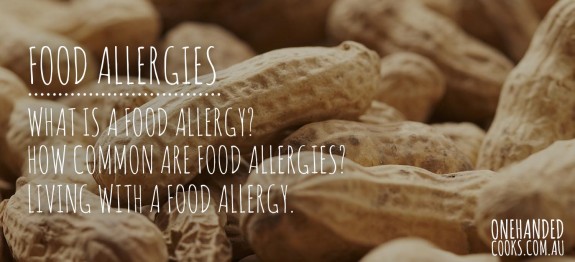Food Allergies
What is a food allergy?
A food allergy is the result of an overreaction of the immune system to a food (which is harmless for most people) after it is consumed, inhaled or, in severe cases, touched. The immune system responds to the allergen by releasing histamines and other chemicals that cause inflammation and result in one or more immediate symptoms.
How common are food allergies?
Around 1 in 20 children and 1 in 100 adults suffer from food allergies. The risk of developing food allergies is greatest in young infants, particularly in the first year of life, due to their immature digestive systems. Thankfully most childhood food allergies will disappear over time, however unfortunately allergies to peanuts, tree nuts, seeds and seafood will often remain life long.
Are food allergies inherited?
In addition to other factors, genetics has a strong influence on the likelihood of developing a food allergy. So, if food allergy is a problem in your family or you are at all concerned, we recommend you seek advice from a health professional before starting solids. Health professionals recommend infants try one new food every two to three days. This allows for you to watch for any reaction and pinpoint exactly which food has caused it.
What are the most common food allergies in young children?
- Cow’s milk
- Eggs
- Shellfish
- Fish
- Peanuts
- Tree nuts
- Sesame seeds
- Soybeans
- Wheat
What are the symptoms of a food allergy?
- Signs of an allergy may include:
- An allergic reaction to the skin – hives, itchiness, redness, eczema.
- Bowel problems
- Tummy pain
- Vomiting or diarrhoea
- Swelling of the tongue
- Coughing or wheezing
- In severe cases, an allergic reaction can result in anaphylaxis.
I think my child has a food allergy, what should I do?
If you suspect a food allergy in your child do not try to treat the allergy yourself. Professional diagnosis and specialised treatment from a medical practioner or Accredited Practising Dietitian (APD) specialising in food allergy and intolerance is essential.
What about Coeliac Disease?
Coeliac disease is an autoimmune disease triggered by a sensitivity to gluten, a protein found in wheat, barley, oats and rye. It causes damage to the small intestine affecting nutrient absorption. Symptoms of coeliac disease include iron deficiency anaemia, gastrointestinal symptoms, skin rashes and dermatitis, lethargy, failure to thrive in infants and delayed growth in children. In some cases people do not experience any symptoms. Confirmation and diagnosis of coeliac disease involves blood tests and a small biopsy. Current treatment involves complete avoidance of gluten in the diet allowing the small bowel to heal and symptoms to resolve. However, it is important not to restrict gluten from your child’s diet before confirmation of coeliac disease. Professional diagnosis and management by a medical practioner and an Accredited Practising Dietitian (APD) is essential.
How can my child live a normal life with a food allergy?
- It’s not always easy to prepare meals for a child with a food allergy. Home cooked meals, snacks and treats will help ensure they still enjoy a wide variety of foods and don’t miss out on the enjoyment of eating.
- Always take the time to plan ahead – give your child safe food to take with them to parties, playdates, even restaurants, if you are unsure if appropriate food will be available and so they don’t feel like they are missing out.
- If you are going to a restaurant, café or someone’s house let them know of your child’s food allergy in advance (if you can) and always ask about the food on the menu.
- Be careful about cross contamination. For example, using the same utensils when preparing food (using a knife to cut sandwiches) or when eating out (deep fried foods are often cooked in the same oil e.g. fish and chips.)
- Invest time in preparing home cooked meals for your child – buy new cookbooks or find recipes on the Internet for new inspiration.
- Learn to understand food labels and ingredients list – it helps to recognise those hidden nasties (and always allow enough time to do the grocery shopping!).
- Educate family members, friends, your childcare centre or school.
- Never hesitate to ask if you are unsure.
- Make sure you have an action plan in place in case your child experiences an allergic reaction. This is even more important for when you are not with them.
Where can I get more information?
- Australasian Society of Clinical Immunology and Allergy www.allergy.org.au
- Allergy and Anaphylaxis Australia www.allergyfacts.org.au
- For more information on coeliac disease go to www.coeliac.org.au
- To find an Accredited Practising Dietitian (APD) go to www.daa.asn.au
Join us on Facebook for other foodie bits and pieces.




























